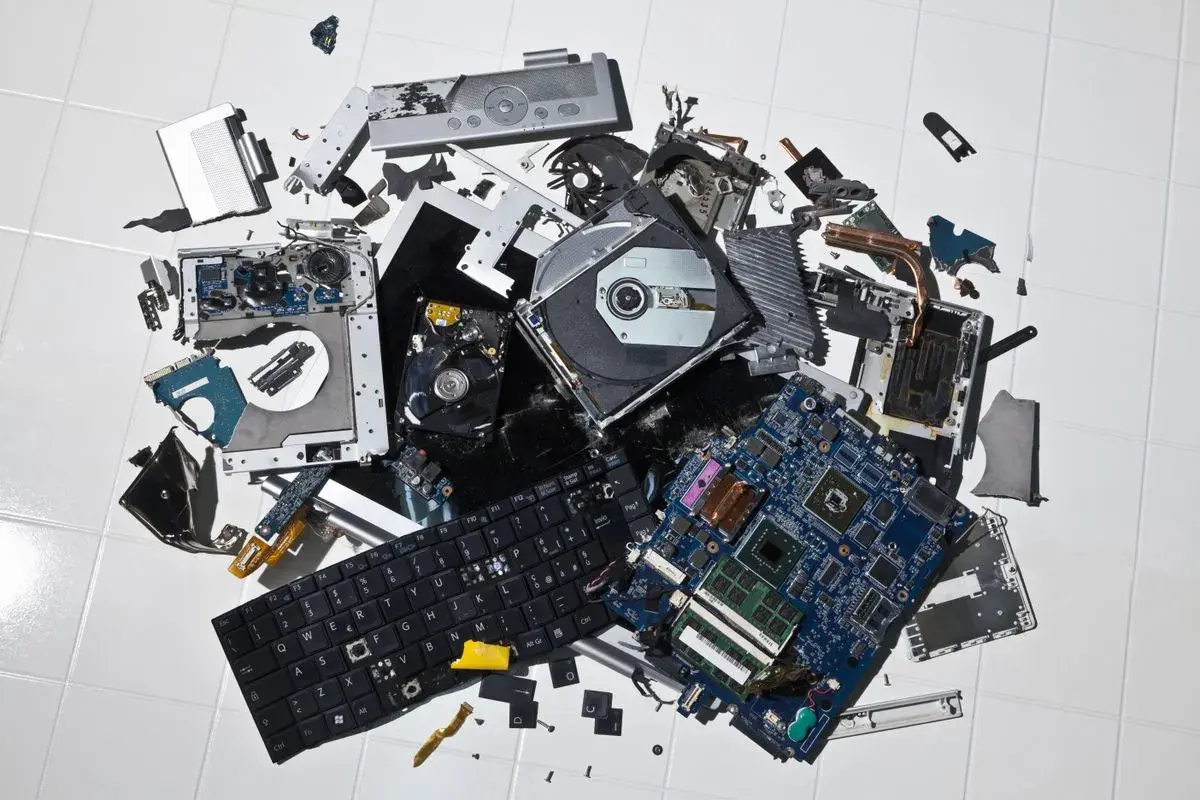Analysts have warned Windows 10 end of life plans could spark a global torrent of e-waste, with millions of devices expected to be scrapped in the coming years.
Research from Canalys shows that up to 240 million PCs globally could be terminated as a result of the shift over to Windows 11, raising critical questions about device refreshes and the responsibility of vendors to extend life cycles.
People are mad at MS for being MS. MS isn’t great, Windows is flawed, and there should be better alternatives. People would be quick to move to Linux if it worked for them. Most desktops now are for gaming. Most gamers have Nvidia. Linux famously has issues with Nvidia because 90% of the distros out there decided to jump on to Wayland before it was even half done. If that’s the state of Linux where my 8-year-old Windows 10 machine still gets updates regularly and runs fine. Windows 10 will actively prevent you from trying to upgrade and bricking your system whereas Linux is absolutely like “Go ahead, hope you read all the patch notes for the 1000s different updates you are about to get!” Most people will go with Windows because Linux doesn’t work for them.
Overall Linux has the power to be good, it just doesn’t have the community will power to do so.
things have generally been going good in this section of the thread, but just a general reminder to all participants that thoughtful comments with some time put into them (as a few of the replies to this comment have been) are going to lead to more constructive discourse than quick, impulsive ones. you’re also definitely not obliged to respond to everything you disagree with or anyone who replies to you, so keep that in mind
I have to agree with this. I tried Linux a couple of months ago, and ran into those issues with Nvidia. My computer was reasonably stable in the desktop environment using a particular version of the drivers, so as long as I was happy to never update the drivers and never do anything but email, web browsing, and word processing, Linux would have been fine. If I wanted to play any games or do any digital art or anything else that required my graphics card, it was either unstable or running barely faster than continental drift, depending on which set of drivers I was using.
Like, I do think Linux is pretty cool, but it very much feels like a project for people who have the time and money to continuously tinker with their computer to get it working exactly as they want. It’s not there yet on the “it just works no matter what you do” front, which is what the vast majority of computer users need from their operating system. Windows, for all its many faults, is broadly stable and can largely be ignored once it’s installed - although I do think it benefits from a reformat every 12-18 months.
I think Linux blows windows out of the water as a server operating system. I’ve been using it that way for over 25 years now.
For desktop, there’s a few problems. First is that the average user cannot install an operating system. So unless it comes pre-installed they’re going to be out of luck. The second is that I’ve not found a distro that won’t occasionally just blow itself up on an upgrade. Driver issues, circular dependencies, and all manner of other things that a normal user just doesn’t know how to deal with.
Then you get to gaming. Which is WAY WAY better all the time. But, knowing what works and what doesn’t, which drivers to use, the best distro that has most of the gaming stuff already sorted for you. Not to mention the Wayland + NVidia issues that people are also talking about here. Also, I’ve never proven it. But on FPS games it feels like there’s just a bit more latency on linux (albeit I think overall most games run smoother on linux).
I think Desktop is still great on Linux. But for mass consumption, it still has a way to go and I do wonder if, while windows exists and is preinstalled on everything if it will ever be more than a niche thing. Most users don’t know there’s an alternative and for sure would have no clue how to go about installing it.
The second is that I’ve not found a distro that won’t occasionally just blow itself up on an upgrade. Driver issues, circular dependencies, and all manner of other things that a normal user just doesn’t know how to deal with.
This is my number one gripe on Linux. It’s supposed to be more stable than Windows but the truth is that it’s only true if you compare a Linux install you never update to a Windows install which is constantly updating for you, making sure you have the latest security patches automatically, ensuring your system is up to date and ready to use. Sometimes (like 0.1% of the time) Windows gets it wrong and upgrades you to a place where you have to revert the upgrade, but it does so automatically. Like Linux, figure that one out first. The most successful consumer Linux platforms (android, steam deck, etc) all are immutable and software/hardware locked. So they never worry about “oh this person has a Nvidia driver and a Wacom tablet, let’s make sure we don’t mess up either of those with a kernel update that doesn’t include the drivers for those yet.”
I think that’s the main problem. You could make a Linux distro that works like android and other embedded setups. But it would be locked down to only allow installations from an app store and custom hardware likely not supported with no way to get a kernel update until the distro does it.
That would totally alienate the current Linux userbase who are used to taking a distro, adding their own install sources, compile some stuff from source, upgrading kernel or perhaps also recompiling from source. Sure an upgrade might break things but they know how to fix it.
The two types of user are worlds apart. I think snap/flatpak etc come closer to a way to get windowsesque setups. But again for many experienced users those also sacrifice too much in favour of convenience.
And if your machine was to be tossed in the trash otherwise, how well do the proprietary drivers operate in the dump?
I don’t get this argument because EoL doesn’t mean they can’t keep windows 10 on it.
I might as well have tossed my computer in the trash if I’d kept Linux on it, since I couldn’t actually do anything with it.
It is perfect for a poor person that just needs internet and email. But yup, because it didn’t meet your use case it is trash. That there is some thinkin’.
compare this to your previous statement :
“if I wanted a server, Linux would be great for that, and if I just wanted a PC for email, internet, word processing, spreadsheets, and the like (ie, a basic office computer), Linux would do just fine too”
Can it do all these totally normal and useful things or is it trash because you can not do anything with it? What nebulous “stuff I need my computer to do” is linux not stable enough for?
I don’t need a server, nor an office desktop. I need something that can play games and do digital art, both of which Linux is not stable enough for, which I stated in my initial post. A computer that crashes every couple of minutes while gaming or doing digital art is not useful for me. Chucking my perfectly good Nvidia graphics card in the bin so I can buy something else that is more compatible with Linux is wasteful. And since starting my degree, I have also determined that about 50% of the software I need to use for group project modules doesn’t work on Linux and doesn’t have appropriate open source alternatives that wouldn’t cause compatibility issues when the files are sent on to other team mates - we’ve all got to be using the same version of the same software.
So yeah, Linux in its present state doesn’t suit my needs.
The real ewaste problem here is not people like me that keep using components until they die from wear and tear, and replace only broken components not entire computers. I’m quite happy to keep using Windows 10 as long as it is compatible with my hardware and software, regardless of whether Microsoft are still supporting it. The problem is the people who throw out perfectly usable computers because the OS is no longer supported.
“most” desktops are used in business and other organizations, not by gamers, and it is these customers and their systems that will be the bulk of the e-waste generated by the forced-obsolescence of their hardware due to 10’s EOL and 11’s ‘new’ requirements.
At least one computer in every US household (these stats show 2 but let’s just keep it one https://www.statista.com/statistics/1107206/average-number-of-connected-devices-us-house/ since it is an average). It’s hard to say that desktops are mostly used in business since there are only 754,633 office workers in the US (https://www.zippia.com/office-worker-jobs/demographics/) and 131.43 million households. ( https://www.statista.com/statistics/183635/number-of-households-in-the-us/ )
Also, many people used Windows XP after its EoL, so much so that they increased it. It’s likely going to be the case here. Windows 10 EoL doesn’t mean the end of use. People seriously, care little about security. They don’t care about having the latest updates. They care about using a functioning computer.
Wait, I’m allowed to dis Wayland here!?
Barely, I’m getting a bunch of Linux nerd flak due to a reasonable opinion I made as a top-level comment. So much for Be Nice.
That is because your statement is not particularly reasonable or rooted in reality.
If you want to dis linux that is fine, go right ahead. I crap on Mac all the time and hate MS with a burning passion. I still use them, which I suppose is why I hate them. I frequently hate linux too, that is just the nature of being in IT.
“It’s not reasonable or rooted in reality” - Yet multiple people saying “Oh, yeah I agree!” Instead of just insultingly saying it’s not reasonable or rooted in reality, assume good faith like you are supposed to as a beehawer. Explain your position, stop throwing shade on a valid opinion without any substance.
And multiple people are disagreeing so that claim means nothing. The real issue is that your top level comment reads like it was written in the 1990s when entering the wrong monitor refresh settings could set it on fire. Other parts dont make any sense :
“If that’s the state of Linux where my 8-year-old Windows 10 machine still gets updates regularly and runs fine.”
Your next sentence :
"“Go ahead, hope you read all the patch notes for the 1000s different updates you are about to get!”
Is clear hyperbole. If you run a modern desktop focused distro like Mint then you click upgrade and let it do its business. Or dont, you dont have to.
I get it, you had some bad experience with linux and were frustrated by some driver issues that were a PITA to remedy so you gave up. Totally valid, but not a failing of linux as a whole. Windows comes pre-installed so you do not have to deal with all those driver issues because someone else already did that work before you ever press the on button.
How the narrative has turned Nvidias active sabotage into Linux maintainers fault is beyond me.
Latest for their reluctance to act on scalpers it should be transparent what you’re getting into with Nvidia.
And then people like you write thing like this… Why?!
Nvidia works fine on X11. You might say it’s Nvidia’s fault for not supporting Wayland more or not having open drivers but the truth is, it doesn’t truly matter. What matters is the end result.
Wanna come configure optimus for me?
On windows it’s trivial.
I think the disconnect here is that others are saying “they aren’t supporting us,” and your response is pretty much “lol, abandon what you’re doing and go back to the corporations.” A totally fair take, but how you’re delivering it comes across as missing their point.
Also “it works on windows” is a terrible rebuttal in a discussion where you first say “it works fine on x11”
I think the disconnect here is that others are saying “they aren’t supporting us,” and your response is pretty much “lol, abandon what you’re doing and go back to the corporations.”
My point is that Linux does nothing to make it easy to support. Nvidia even has made an open source kernel driver. https://github.com/NVIDIA/open-gpu-kernel-modules Nvidia is doing a lot of work to support Linux and people don’t seem to see it.
Also “it works on windows” is a terrible rebuttal in a discussion where you first say “it works fine on x11”
A question to configure Nvidia Optimus is also a terrible rebuttal in the first place. Optimus is blocked because Linux kernel doesn’t want proprietary blobs. AMD has the same exact issue.
The problem is that nvidia’s drivers are shit but we couldn’t do anything because for the longest time, for nvidia cards to work at a decent speed, it requires the drivers to be signed by nvidia.
We couldn’t do anything and you are blaming us for that.
Now that this, AFAIK, has been lifted new things like NVK are emerging.
The problem has been reluctance abd uncooperativeness from nvidia, not the linux community
The cause is what should matter because that’s what could influence future decisions.
And there is no Wayland mandate anyway so I don’t understand that side of the argument either - there is no “Linux” in this room who decided to switch…
So then Linux as a community needs to foster better working relations and funding for developers to get major things working on their platform.
there is no “Linux” in this room who decided to switch…
No, it’s more of a community hivemind which is part of the issue. A hivemind can act together for the most part but it increasingly becomes hard to have direction on a hivemind. It goes where it wants, you can’t direct it but only offer it paths. So the majority of Linux users seem to want to scream that Linux is fine to use for common users while also saying “Well we don’t need to be a majority OS anyways, we shouldn’t invest time into trying to become one.” Any feedback actual users give to Linux communities ends up like this discussion, just filled with excuses or remarks that the user is holding it wrong. Using the wrong hardware, using the wrong distro, not being knowledgeable enough. Yet they do nothing to resolve those issues.
So regarding this part:
that’s what could influence future decisions.
I don’t think anything can do that. Linux future decisions aren’t influenceable except by contributors and they do what they want without really being able to tell them that the OS they’ve contributed to is somehow broken.
See and that’s what’s backwards from my point of view. Even though I was on win mainly back then I refused to buy Nvidia because of their shitty practices.
I’m talking about your and my behavior not about anyone else. :)
Cool, AMD also isn’t a saint: https://en.wikipedia.org/wiki/AMD_FX#Controversy https://www.pcgamer.com/starfield-partners-with-amd-and-oh-boy-the-internet-is-not-happy/ every major company has it’s issues. I don’t hate AMD, I’d probably still buy them if I found them as good as Nvidia but overall I don’t. They still do some shady stuff like blocking rival upscalers or straight-up lying to customers.
So if you base your opinion of a company around one thing, that’s fine. More power to you. I see these large corporate hardware overlords as all the same and work with what makes my life easier.
My base opinion is flexibility. You blamed first Linux then Wayland now you’re what about AMD… What’s YOUR point?
You can stick with windows and Nvidia your whole life all I ask is not spread your bullshit from your OP.
Both Intel and AMD GPUs work fine on Linux. Both work fine with Wayland.
Wayland has been around for over a decade and has been in a usable state for the last 3 or so years.Attributing the fact that Nvidia stuff still barely works to the fact that some distros have made Wayland the default is just stupid wrong.
Besides, Nvidia experience isn’t/wasn’t the smoothest even on Xorg. Linux desktop is simply not a priority for Nvidia.
Both Intel and AMD GPUs work fine on Linux. Both work fine with Wayland.
k, so for the least used hardware, linux works fine. Good to know.
Wayland has been around for over a decade and has been in a usable state for the last 3 or so years.
Eh, no, KDE last year just barely started working with Wayland.
Attributing the fact that Nvidia stuff still barely works to the fact that some distros have made Wayland the default is just stupid wrong.
The popular distros are what counts. Debian, Ubuntu, and Fedora. Just because you have some minor 0.00001% usage distro that still defaults to X11 doesn’t really matter.
Besides, Nvidia experience isn’t/wasn’t the smoothest even on Xorg. Linux desktop is simply not a priority for Nvidia.
Worked well enough for me to run into the dozen of other issues that Linux has. While I am sure you will just blow it off as not the true fault of Linux, the result is the same. I like most people want a usable environment. Linux doesn’t provide that out of the box. You can argue excuses for it all day but the end of it is, it’s not going to be a useful OS until it works out of the box with things like wacom tablets (which are broken with nvidia drivers), xbox controllers (which are just broken unless you do research and install the correct driver), and tons of incompatible software (which I am sure you can blame the developers for.) The end result is the same though, you don’t have a working environment.
k, so for the least used hardware, linux works fine.
Yeah, basically. Which raises a question: how companies with much smaller market share can justify providing support, but Nvidia, a company that dominates the GPU market, can’t?
The popular distros are what counts.
Debian supports several DEs with only Gnome defaulting to Wayland. Everything else uses X11 by default.
Some other popular distros that ship with Gnome or KDE still default to X11 too. Pop!_OS, for example. Zorin. SteamOS too, technically. EndeavorOS and Manjaro are similar to Debian, since they support several DEs.
Either way, none of those are Wayland exclusive and changing to X11 takes exactly 2 clicks on the login screen. Which isn’t necessary for anyone using AMD or Intel, and wouldn’t be necessary for Nvidia users, if Nvidia actually bothered to support their hardware properly. But I digress.
Worked well enough for me to run into the dozen of other issues that Linux has
Oh, it’s no way perfect. Never claimed it is.
I like most people want a usable environment. Linux doesn’t provide that out of the box.
This both depends on the disto you use and on what you consider a “usable environment”.
If you extensively use Office 365, OneDrive, need ActiveDirectory, have portable storage encrypted with BitLocker, etc. then, sure, you won’t have a good experience with any distro out there. Or even if you don’t, but you grab a geek oriented distro (e.g. Arch or Gentoo) or a barebones one (e.g. Debian) you, again, won’t have the best experience.
A lot of people, however, don’t really do a whole lot on their devices. The most widely used OS in the world, at this point in time, is Android, of all things.
If all you need to do is use the web and, maybe, edit some documents or pictures now and then, Linux is perfectly capable of that.
Real life example: I’ve switched my parents onto Linux. They’re very much not computer savvy and Gnome with it’s minimalistic mobile device-like UI and very visual app-store-like program manager is significantly easier for them to grasp. The number of issues they ask me to deal with has dropped by… A lot. Actually, every single issue this year was the printer failing to connect to the Wifi, so, I don’t suppose that counts as a technical issue with the computer, does it?
wacom tablets
I use Gnome (Wayland) with an AMD GPU. My tablet is plug and play… Unlike on Windows. Go figure.
Linux is only a problem for folks used to someone else. Also, the article is about ewaste. Meaning, these machines are going to be trashed unless someone puts linux on them. So I’d say your diatribe of misinformation was misplaced.
Linux is only a problem for folks used to someone else.
I assume you mean for folks used to something else and if that’s what you mean, no, it’s not. People want to play minecraft, fortnite, and use office without problems. Hell, right now with how the Nvidia/Wayland situation is, I can’t even launch the fedora 36 live cd to install it without it crashing on my 3080, amd ryzen 9.
Also, the article is about ewaste. Meaning, these machines are going to be trashed unless someone puts linux on them. So I’d say your diatribe of misinformation was misplaced.
No, it doesn’t, It means they’ll be using Windows 10 without patching. At the EoL, Windows 10 doesn’t uninstall itself.
Yes being pedantic is easy. Did you have a point? What does nvidia’s failings have to do with anything? Pull that garbage out, drop in linux mint and donate it to a poor kid that needs it for school.
At EoL, corporate security tells the IT department to uninstall it.
Windows works great because MS tapes it back together slightly faster than it falls apart.
When EoL hits, those devices are either trashed, firewalled into oblivion, or assimilated into the kube.
At EoL, corporate security tells the IT department to uninstall it.
In that case, big corporations are already on Windows 11 and have thrown away any Windows 10 computer that couldn’t upgrade. Most of those machines go home with people though.
Windows works great because MS tapes it back together slightly faster than it falls apart. When EoL hits, those devices are either trashed, firewalled into oblivion, or assimilated into the kube.
if this was true then Windows XP and 7 wouldn’t have lasted as long as they did.
You say that, but just like with XP, Microsoft announced a paid subscription to Windows 10 security updates for up to 3 years after the EOL date. There are probably a good number of companies who haven’t switched yet or will not be able to switch easily.
I know someone who only just switched from XP to 10. They literally did it yesterday, after battling with 10 for a couple of months - eventually they relented and replaced the components that were simply too old to work with 10. They only upgraded they reached a point where too much of the software they relied upon ceased being compatible with XP. Technically their 15 year old graphics card is now unnecessary landfill, since it was working and my friend didn’t want to stop using it - but I’m not sure I’d say a graphics card that has been in continuous use for so long could really be considered “wasted” even if it was still functional at the time of disposal.
Seems to me that the problem of working computers (and individual components) going to waste while still being usable, due to changes in software requiring changes in OS is not new. The only way to prevent it would be to ban all further development of both hardware and software, so that hardware never becomes out of date.
@frog @MJBrune I don’t think we need to ban development, I think we need to resume focus on optimization so that things like a chat app don’t take up 1+ GB of RAM for example. If the operating system can still fit in old hardware’s specs, then unless someone is trying to do a task that is demanding for the currently available hardware (and it sounds like 15yo graphics card ain’t in that demographic) then it should largely be a case of update operating system, grab new versions of programs, and be about your day.
I maintain a Linux server at work which has our ERP on it (I wouldn’t say I’m great at it but know the basics). I use Linux at home for a few projects and things like routers, etc. My daily PC at home is Windows. I like Linux but the issues I’ve had in the past, while they can be resolved, generally take up more time that I’m willing to put in. I don’t want a hobby just to keep my PC working.
I like Linux but the issues I’ve had in the past, while they can be resolved, generally take up more time that I’m willing to put in. I don’t want a hobby just to keep my PC working.
That’s absolutely the case and it reminds me that Linux is a hobby OS for trinkering. Not a production OS for people who want to get stuff done. From 2008 to 2014 I used Linux as my daily driver. After that, I switched to Linux every year to see if it got better and it never truly has. This year I finally nuked my Linux hard drive and put NTFS on it as a 4th SSD for Windows to use. Linux might be ready one day but it will be because of a proprietary company gave it direction, motive, and industry connections to solve the problems with it.
Because you were not just looking at the web and email, the issues are not relevant. Most folks are not setting up a load balancer or adding an extra NIC. Your protestations are invalid anyway as the article is about ewaste, and not personal choice given all options. These devices are what they are. So given the circumstances, it is put linux on them or they are trash.
(or they can keep Windows 10 on it and just got get patches like many did with Windows XP)
I think you’re massively over-generalizing here to make Linux look like an unstable mess. Rolling release distros are the ones that want you to read the patch notes. Arch is the poster child for those. Stable distros like Mint and Ubuntu and elementaryOS don’t brick your system with every update. They hold back updates and stick with older kernels to ensure stability. Linux is, already, very good. It sounds like you haven’t used it for any length of time. Valve’s work on Proton has made Linux gaming viable for a whole lot of people, but the majority of computer users don’t play intense video games. They want web browsing, email, office software, that kind of thing. Linux does those just great on almost any device all the way down to Raspberry Pi boards.
I used Linux as a daily driver for 5 years and was a FreeBSD porter for 2 years after that. I’ve been using Linux every year to pop in and see the issues and their current state. In this year alone, I’ve seen issues with Fedora, Linux Mint, and Manjaro. Hell, even right now the Fedora Live installer won’t launch on my desktop. It hard freezes before it can even get the installer up.
In seriousness, I have used Mint as a daily driver for probably 7 years now and I have found only the MATE and xfce flavors to be properly reliable and stable. Cinnamon, no matter how many times and on what hardware I’ve tried it, has a lovely habit of crashing and freezing at random times. For normal desktop tasks, Linux Mint xfce has been more reliable than any Windows I’ve ever used.
Have you considered that you might have Bad Vibes? Maybe the installer is afraid.
If the installer is that easily scared off then it doesn’t deserve to be an installer. I treat the Windows installer far worse.
Linux. linux. linux. linux. linux. linux. linux. linux. linux. linux. linux. linux. linux. linux. linux. linux. linux. linux. linux. linux. linux.
Which distro?
Linux
Debian.
Windows 10 has a 32bit version, Debian is one of the few distros that still support 32bit, so to stay safe… Debian.
A lot of Congolese children died in humiliating and painful ways for that e-waste. Now many more will suffer and die. The good news is that Microsoft executives are probably getting a great bonus out of it for their stellar leadership and business acumen.
Why would 240 million devices be scrapped? Just install Windows 11 or Linux on them. If you have a PC built in the last 6 years, you can probably run an OEM version of 11 if your settings in 10 is saying you don’t qualify.
This post just highlights just how woefully technologically unsavvy the average person is.
In the case of business’s, liability reasons, real and imagined, mostly prevent just “switching” OS’s freely.
In the case of home users, think of how many people you know that have a windows computer. Now how many of those people can you confidently say could install ANY OS, let alone handle setting up Linux or bypassing TPM requirements for W11?
Personally, out of the hundreds of people I know with a windows computer, I can count on my fingers how many I’m confident in being able to install an OS. Most people are really not tech savvy. They will just ride it out with no security patches until it becomes Jenn’s laptop from the IT Crowd, and then they’ll chuck it in the garbage.
Windows 11 actually won’t run on all of them due to inconsiderate and arbitrary system requirements… but otherwise yes.
I don’t think it’s fair to jump on Microsoft for this one. Windows 10 has been out for almost 10 years. Apple gives less support for systems than 10 years, they are closer to 8, which is still a while.
If you bought a PC in 2018 or later it should support tpm in the CPU, if it doesn’t it’s on Dell or HP or whomever made the system. If you built a pc you can buy a TPM for most motherboards.
Microsoft said you can pay for updates for windows 10 if you want. If your parents core i5-2700 with 4gb of ram from 2012 will no longer get free updates… that seems fair… or go to Linux, but we know most people won’t. Honestly it would be a great time for a “convert to chromeOS installer”
I don’t think it’s fair to jump on Microsoft for this one. Windows 10 has been out for almost 10 years. Apple gives less support for systems than 10 years, they are closer to 8, which is still a while.
it is absolutely fair to blame Microsoft, because they promised their customers, device manufacturers, and even businesses that Windows 10 was going to be their last OS, and flipped that switch out of nowhere when they realized they could be making more money.
Windows 12 supposedly going to be subscription based I feel like is a great example.
I think the point of contention is that Windows 10 works fine, there is no need to move to Windows 11 except that Microsoft has found new ways to monetise the OS through its data, so they are making Windows 10 end of life
I think that it’s absolutely fair to jump on Microsoft for this.
There is nothing wrong with this hardware. RAM and CPU clock speed plateaued a long time ago. The overwhelming majority of these systems being thrown away would run Linux flawlessly.
Microsoft has never given a damn about security before. These new security “features” do more to lock people in than they do to keep them safe.
Fucking M$ being M$
What?
Minimum system requirements for installing Windows 11 on a PC mean users must have a processor of at least 1 GHz or faster along with a minimum of 4GB RAM. Storage requirements are also set to a minimum of 64G
Like you can’t exactly blame MS for people still using old arse components.
Likewise if people wanted they could keep using windows 10 or switch to a Linux distro to keep the machines running.
You also need a pc that has TPM 2.0 enabled. My 3yr old PC doesn’t have that enabled by default and I’m not even sure what that is or if the motherboard supports it (nor do I care, it’s keeping Microsoft from forcefully upgrading me to windows 11).
If you really want to use windows 11, download an ISO and flash it on a USB using https://rufus.ie/it/ You can disable TPM by checking a box in rufus
You’re probably better off using windows 10 LTSC (or LTSC IOT), which are long term support win10 versions aimed at enterprise, with the only real difference being they come devoid of bloatware and they are supported for many more years than the consumer version.
Even better, think about “making the jump” and upgrade to linux. The most beginner-oriented distros are stupid easy to use (and with a better UI and UX than windows imo), you do not need to use the command line at all, they will support your hardware and they will most likely have the exact programs and games you use.
I assume the longterm support version of windows 10 costs money.
AFAIK the upgrade to 11 is free.
Both’s LTSC channels cost money.
I have no intention of upgrading to windows 11. I do plan on making the jump to Linux when Valve (hopefully) releases the arch-based version of SteamOS.
You don’t need to wait for valve to game on Arch. Just install steam on endeavourOS
You can probably just enable it in the bios/uefi. Most modern CPUs have integrated TPM
CPU’s 6 years and older are not supported. That isn’t old. I was using a 6 year old CPU perfectly happily until this year.
I also don’t have a TPM module so I am still unsupported anyway.
So an unsupported work around. cool, cool
True I can do that but most people won’t. I am not expecting my less tech savvy friends to even try if they even do know about this workaround.
I have a old gaming laptop that is not supported.
Intel i7-7820HK, 4cores 8 threads 2.9Ghz.
Released in 2017.
That’s not old-arse as far as I’m concerned, and I don’t see the need for an upgrade. I’m going to install Linux on this PC because I have the know-how and desire to check out how electron fares. But I can see how that is not an option for everyone.
I’ll be forced to switch to linux when 10 reaches end of life, but I’m genuinely not looking forward to it.
I’ve tried it before and given up after hours of hair pulling. Not linux’s fault necessarily. Often driver issues.
That’s the thing a lot of fanboys forget. They often install linux on hardware they handpicked to be compatible on a pc they assembled themselves. Most casual users are upgrading an existing non-self assembled system, which may or may not be compatible, and contain parts that don’t have good driver support. Eg. a cheap realtek card that was never sold to consumers directly, meaning it would only be installed in windows systems.
Drivers for new/cutting edge hardware will often lag behind for linux. Installing on hardware that is a few years old will generally be a breeze if you choose one of the big name distros. I personally use Linux Mint for the “it just works” ease.
The folks pretending that the EoL date for W10 is appropriate, are the new computer every two years and throw the old one out crew.
The issue is TPM, and nothing else.
I think it’s mainly businesses and not users who will keep using it without support.
As for the other I switched to Linux, but I can’t seem to keep it running. I currently have no computer until I get another distro onto a bootable USB. Fortunately my /home partition seems fine but my root partition broke. It would start in recovery mode but not otherwise. Tried fixing it and now it’s broke worse.
I’m a very technical person. Expecting people to move to Linux because they don’t want or have TPM2.0 is not going to work.
I’m a moderately technical person and every single time I’ve tried Linux in the past 20+ years it went like this: Huh, this isn’t so bad, I might use it more of- oh wait, never mind, a cryptic error message just appeared, because I had the audacity to plug some device in or download some generic application so I had to use the terminal again for some incredibly mundane thing and it only worked after I tried three different approaches from forum posts so old I needed to use the Wayback Machine to be able to read the guides they linked to. Those guides naturally omitted vital details that I only noticed, because I’ve been trying to use Linux for over 20 years and actually read a book or two on this mess. It doesn’t matter which distro, which device, which use case, it’s always like this.
The very best “Linux for the masses” I’ve used so far (outside of Android) is SteamOS on the Steam Deck, but even it falls apart the moment you venture outside of the user-friendly walled garden that is the Steam application.
So issues only when doing something other than browse the web and read email, like most folks only ever do? And a walled garden is exactly what most folks actually need since they won’t avoid clicking everything they see. So like on mobile, most folks want the curated don’t have to worry about it. That was the whole selling point of Apple all these years.
Sure, but I’ve experienced hiccups that would never occur in Windows with things as mundane as hooking up a printer, which is well within the realm of what a normal person is using their computer for.
Also, you can fault Apple for many things, but a lack of polish and a poor user experience aren’t among them. I’ve used Apple devices five times in the last ten years and each time I was, with no prior knowledge nor the need to look anything up, able to help people with their issues and quickly. Linux is the polar opposite of that.
What is “old arse” to you might be blazing fast and great for someone else (potentially in a less fortunate area of this world), and besides that, no matter your or my sensobilities, if it works, it works and should be kept that way as long as it has a purpose and the hardware permits it.
When I read the title I was like “How would you torrent ewaste?” I’m going back to sleep.
deleted by creator
It is only frustrating for folks used to a different os.
deleted by creator
So, “give those to poor kids”, and use your proprietary software in the OS you are allowed to use. Not seeing the issue.
use your proprietary software in the OS you are allowed to use. Not seeing the issue.
The OS they are able to use is Windows 10. They likely don’t meet the TPM requirements to update to Windows 11(as if you’d wanna use it anyways); so when W10 goes EoL, they will be SoL(shit out of luck) on getting future security patches. Which is y’know, bad, especially on the machine you do actual work on.
Since all the.“but you can disable this”, “just switch to Linux that” posts are already going strong, I’d like to remind everyone that many, many of those devices will be from businesses and are on some sort of leasing agreement. Since.the business needs to safeguard itself against IT fault related costs, they will not circumvent TPM, not because there would be anything wrong with doing that, but because they do not want to provide a target for insurers and lawsuits when they use their PCs in “an unsupported configuration”. Businesses see their PCs very differently than private ppl do and “just switch to Linux” will be so much more expensive that they will not do that. They’ll just get delivered new stuff from their leasing partner and that’ll be that.
TPM performing the lock in they failed with thus far.
In all honesty. Most business laptops will have recent TPM anyway. Simply because if you give employees laptops you damn well want bitlocker on them. Where I work they’re changed every 2 years anyway. People lose laptops. It’s just a fact of life and you want some protection for the data on there.
Desktops, not so sure. For home users, there are of course very simple tools to make customised Win 11 boot USBs removing the fake requirements. But I’d say that the majority of users still couldn’t install an operating system at all. So if windows cannot upgrade itself, they’ll sit on unsupported win 10 or have to buy a new one.
If you can install windows, you can install the customised one I’d wager. The skill level is about the same.
Microsoft promised Win 10 to be the last version and failed
They’re plan to move everyone onto a subscription plan by locking everyone in failed.
it was a false/inaccurate quote, afaik, but my thinking after hearing it was…
yea, last one we’ll buy, everything after will be a subscription.
might be ‘postponed’ a few versions (my guess is whatever’s after 12), but i’m certain that’s still microsoft’s end goal: subscriptions and only subscriptions.
At the 2015 Ignite conference, Microsoft employee Jerry Nixon stated that Windows 10 would be the “last version of Windows”, a statement reflecting the company’s intent to apply the software as a service business model to Windows, with new versions and updates to be released over an indefinite period
Doesn’t seem like a false quote
But incorrectly quoted as “Microsoft promised…”. It was one low-tier Microsoft employee who said it once, in a side note of a conference talk that was not about the future of Windows.
He is a Senior Software Development Engineer and was a Developer Evangelist at Microsoft, the latter of which apparently translates to press person. So not low-tier but probably side note
A developer evangelist is not a press person, but a developer that gives talks to other developers. I didn’t find any specific numbers, but Microsoft probably has hundreds of them. And anyway you wouldn’t expect that kind of announcement to be made by anyone who isn’t like C-level, in a presentation made specifically for that fact, accompanied by a big marketing campaign, and so on.
Someone should open a business taking free perfectly good laptops people were going to throw out, putting Linux on them, and reselling them.
Goodwill could do this with anything they get donated.
Free Geek here in Portland OR used to do this. Might still be doing it too, but I haven’t been back there since 2018 so I’m not 100% sure.
But yeah, the last I was there, you could walk in and just buy a refurbished laptop or desktop with Linux on it. They would even give guidance on what people needed if they weren’t tech-savvy.
If only you could put linux on them so they get security updates and give those to poor kids. Shame that is not possible. /s
It’s not possible. I need software that runs only on windows, so as much as I’d like to I can never switch. The only thing I can do is maybe do a vm passthrough thing - except I don’t want to spend a couple of grand on a new pc. People have jobs, real jobs, we have to work instead of fucking around distro hopping. A whole bunch of people could possibly switch to linux, but it’s still such a major pain in the ass that nobody will do it unless they are forced into it. Expect hacked win 11 installs
So,
-
you’re called an exception, not a rule. Just because YOU need windows doesn’t mean literally no one would have have use for ewaste revived through Linux.
-
I run programs made exclusively for windows on Linux using wine daily. And
-
maybe you like to fuck around distro hopping when you use Linux, the rest of us just fucking use our computers like a normal person. (See, I can be condescending too).
I’m called the vast majority. I can’t use my software on wine because it’s not supported by my vendors. It’s nice that you use things, but try working in architecture, civil engineering and construction and let me know how that works for you.
Let me be even more condescending - I use things I need to do my work. I don’t jerk off to linux or windows. If there was an option to move to mac I would do it. That’s using a thing like normal person, you use thing get money
I disagree, the vast majority just need a browser, your use case may be quite common, but definitely not the majority.
Wow, I didn’t know poor children were allowed to be civil engineers, that’s so progressive! /s
-
While I agree with you that some software isn’t capable of running on Linux (even through wine), there is another aspect that’s important to remember. Want and choice. The software that doesnt run on Linux is developed only for Windows because of market share. If more people used Linux, and more importantly, demanded Linux support, more software would support it. I WANT to use Linux instead of windows, so in order for that to become a reality, I push companies to support it and I talk to people and encourage trying Linux out. Can everyone make the switch? No, but some can; and the more that do the more Linux will be supported.
Your voice and opinion and choice matters. Don’t let a big corporation steal that from you. Even if you want to use Windows, you should still have the choice.
Wine works pretty well for a large percentage of Windows programs
The “give those to poor kids” part was such a foreign concept you failed to even acknowledge the words existence. wow.
I have no idea what you’re about here
Ok I’ll bite. What’s the software you “need”?
Oh I don’t “need” it at all, like I don’t “need” my job, electricity or running water. Autodesk shit, some other things. Imagine - it doesn’t work on anything except windows. And it’s like that for 70 or 80 percent of my colleagues (there are things for apple). And let me tell you, Autodesk barely want to make thigs work on windows, they hate their customers for real























